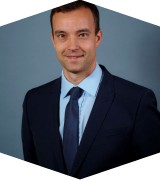
Public Lecture
Thursday 6 February 2020, 18.00, Room EB 306
The idea of protecting authors of creative works gained relevance first during the Renaissance, when the notion of humanism, coupled with technological innovation, led to the blossoming of individualism and European culture. The early monopolies and the first copyright acts provided an economic incentive for the creation and dissemination of works. From the 19th century, the romantic concept of authorship, coupled with the notion of moral rights transformed copyright law into a more colourful regime. The triangle of interests (those of the authors, intermediaries and the society) have led to a fragile, but functioning copyright ecosystem. Technological innovation and social demands have constantly put this balance at stake. Among others, artificial intelligence (AI) poses new challenges by putting some of the most fundamental concepts of the human-centred copyright regime at stake. While technological development is inevitable and necessary in our modern society, copyright protection is not a necessary prerequisite of innovation. While AI-positivists lobby for the extension of protection to (at least certain) outputs of algorithms, AI-pessimists fear of unintended side-effects that might hinder human creativity (and maybe chill cultural development in general). The presentation – taking an AI-pessimistic position – aims to argue that granting exclusive rights to AI-investors or the machines themselves is not needed for the prosperity of AI-industry. Indeed, society would benefit more from a non-exclusive and publicly controlled AI-environment.
Péter Mezei is Associate Professor of Law at the University of Szeged (Hungary), where he is Deputy Head of the Institute of Comparative Law and Legal Theory. He is the author of Copyright Exhaustion: Law and Policy in the United States and the European Union (Cambridge University Press, 2018).
>> Public Lectures Series 2020






